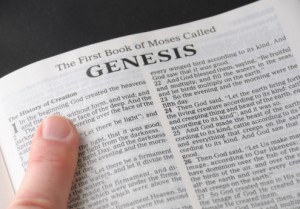 Historically, Protestant theologians have highlighted four defining attributes of Scripture: necessity, sufficiency, clarity, and authority. Each of these attributes is meant to protect the truth about the Bible and safeguard against common errors.
Historically, Protestant theologians have highlighted four defining attributes of Scripture: necessity, sufficiency, clarity, and authority. Each of these attributes is meant to protect the truth about the Bible and safeguard against common errors.
The doctrine of Scripture’s necessity reminds us that we need God’s word to tell us how to live and how to be saved (1 Cor. 2:6-13). General revelation is not adequate. Personal experience and human reason cannot show us the gospel. We need God’s gracious self-disclosure if we are to worship rightly, believe in Christ, and live for ever in heaven.
The doctrine of Scripture’s sufficiency reminds us that God’s word tells us all we need to know for life and godliness in Christ Jesus (2 Tim. 3:14-17). We don’t need new revelations. We don’t need dreams or vision. We don’t need a council of prophets or a quorum of apostles to present to us new information about Jesus Christ and the gospel. Scripture doesn’t tell us everything we might want to know. But it tells us everything we truly need to know.
The doctrine of Scripture’s clarity (or perspicuity) reminds us that the saving message of God’s redemption can be understood by all who care to hear it (Deut. 30:11-14). This does not mean every passage in the Bible is obvious or that we should shun proper training in all the biblical disciplines. But when it comes to the central tenets of Scripture, we can discern God’s word for ourselves, apart from official church interpretation. There is a meaning in the text and God knows how to communicate it to us.
The doctrine of Scripture’s authority remind us that God’s word stands above all earthly powers (Psalm 138:2). On every matter in which the Bible means to speak, the last word goes to Scripture, not to councils or to catechisms or to science or to human experience, but to the word of God. We all have someone or something that we turn to as the arbiter of truth claims. For Christians, in the final analysis, this authority must be, and can only be, the Scriptures of the Old and New Testaments.
These evangelical attributes are an easy and important way to remember all that Scripture is for us and to us: necessity, sufficiency, clarity, and authority. Or to put the list into four sentences:
God’s word is needed.
God’s word is enough.
God’s word is understandable.
God’s word is final.
~Kevin DeYoung

 Does it help a blind man if we light his room with a bulb ten times more powerful than the one he is used to? Silly question, right? We all know that the problem is not the amount of light available to the man. The problem is that a blind man cannot see.
Does it help a blind man if we light his room with a bulb ten times more powerful than the one he is used to? Silly question, right? We all know that the problem is not the amount of light available to the man. The problem is that a blind man cannot see. God’s control is absolute in the sense that men do only that which He has ordained that they should do; yet they are truly free agents in the sense that their decisions are their own, and they are morally responsible for them. It’s hard to grasp that mentally. Actually it blows our minds. Yet these two things are taught constantly in the Bible: (1) God is totally Sovereign and (2) man is totally responsible.
God’s control is absolute in the sense that men do only that which He has ordained that they should do; yet they are truly free agents in the sense that their decisions are their own, and they are morally responsible for them. It’s hard to grasp that mentally. Actually it blows our minds. Yet these two things are taught constantly in the Bible: (1) God is totally Sovereign and (2) man is totally responsible.